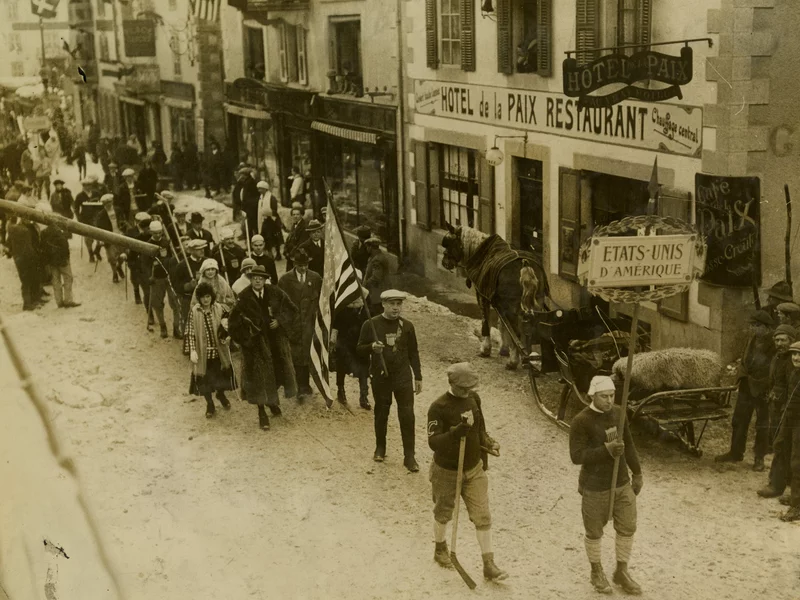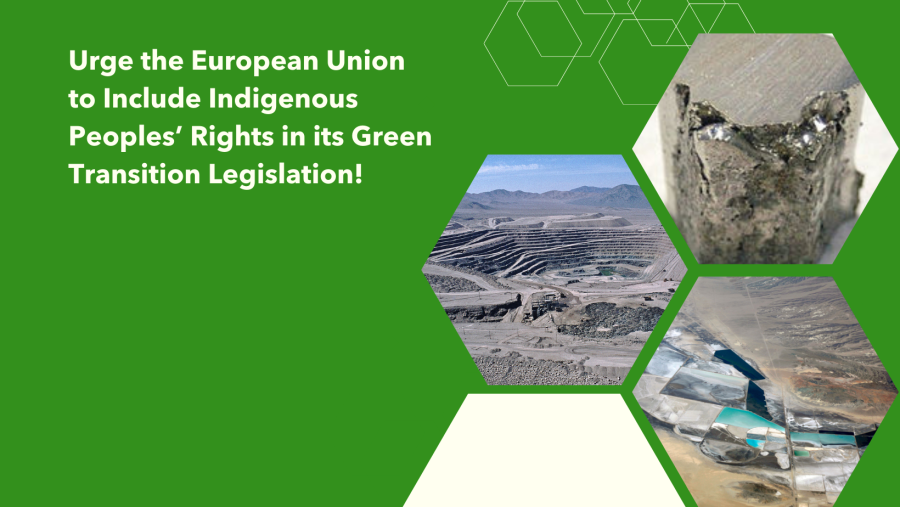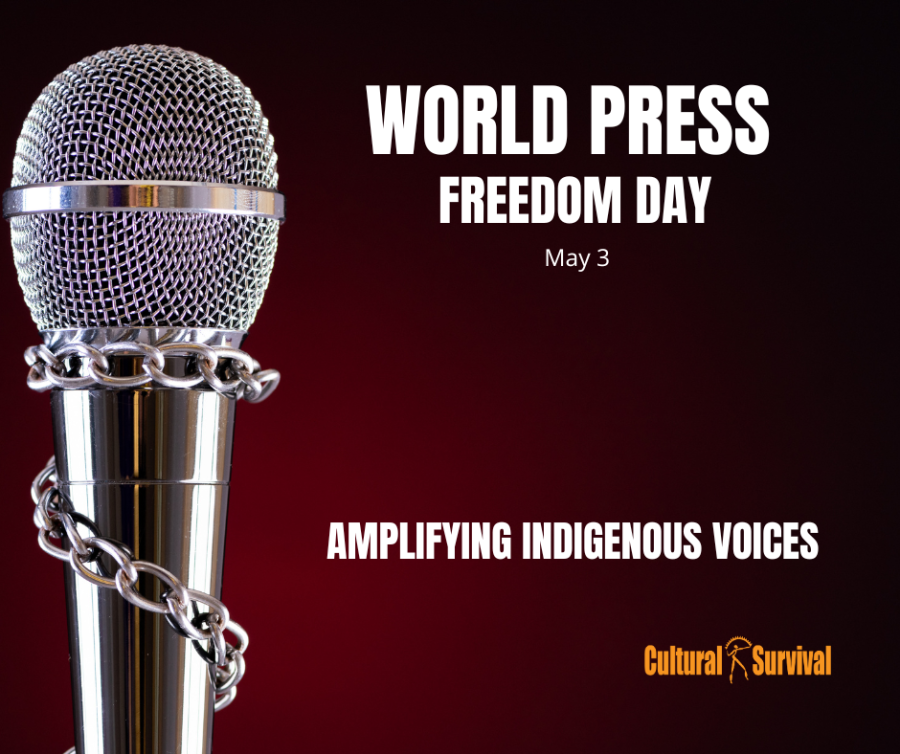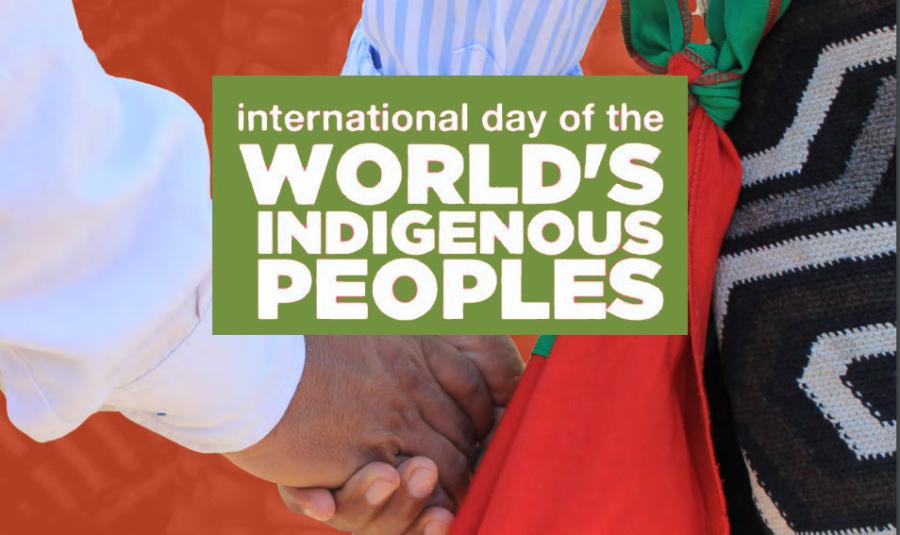
By Dev Kumar Sunuwar (Koĩts-Sunuwar, CS Staff)
The Paris 2024 Olympic Games, hosted in France, promised to be a landmark event. They showcased diverse athletic talents worldwide and celebrated a century of Indigenous participation in the Games. Over 50 Indigenous athletes proudly represented their nations, marking a significant milestone in the history of the Olympics. This substantial increase from previous years highlights the growing recognition of Indigenous talent in sports.
This year's Olympics hold special significance as they commemorated 100 years since the first Indigenous athlete, Taffy Abel (Ojibwe), participated in the Games: Abel, from Sault Ste. Marie, Michigan, was the first Native American to compete in the Winter Olympics in 1924. He served as the USA Flag Bearer and became the first Native American to play in the National Hockey League (NHL) in 1926.

Taffy Abel as the USA Flag Bearer in the Winter Olympics in 1924.
Abel's achievements are particularly remarkable given the racism and discrimination faced by Indigenous Peoples during his time. His groundbreaking participation in the Olympics and the NHL paved the way for future generations of Indigenous athletes. However, the underrepresentation of Native Americans in hockey, both in the Olympics and professional leagues, remains a complex issue often attributed to systemic racism.
Abel's legacy inspires Indigenous athletes and symbolizes the ongoing fight for equality and representation in sports. The centennial of his Olympic achievements in 2024 provides a unique opportunity to celebrate his remarkable journey and acknowledge the adversity he overcame.
The 2024 Olympics will feature a diverse group of Indigenous athletes from various countries competing across different sports. Canada is sending athletes like Justina Di Stasio (wrestling), Apollo Hess (swimming), Margo Erlam (diving), and Shalaya Valenzuela (rugby sevens). The United States will be represented by three Native Hawaiian athletes: Carissa Moore (surfing), Heimana Reynolds (skateboarding), and Micah Christenson (volleyball). Australia boasts 11 Aboriginal and Torres Strait Islander competitors across eight sports, while New Zealand is fielding an impressive 34 Indigenous Olympians, constituting 17 percent of their team.
These athletes carry the hopes and dreams of their communities, serving as role models who demonstrate that anything is possible with talent, dedication, and perseverance. Their participation in the Olympics is a celebration of Indigenous heritage and a testament to the resilience and strength of Indigenous Peoples worldwide.
While the NHL Washington Capitals have acknowledged and honored Abel's pioneering legacy, broader recognition from the NHL and some team owners is still awaited.
As the world marks the 100th anniversary of Abel's Olympic debut, his story stands as a powerful reminder of the significance of diversity, equity, and inclusion in sports. The "Michigan Mountain" legacy inspires athletes and advocates, urging for a more inclusive and fair future in hockey and beyond.
The 2024 Summer Olympics, running from July 26 to August 11, 2024, demonstrated athletic excellence and celebrate Indigenous heritage, resilience, and the ongoing pursuit of equality in sports. The Games showcased 53 Indigenous athletes competing in various sports, highlighting the increasing representation and accomplishments of Indigenous athletes on the global stage. After the Olympics, the Paris Paralympics will occur from August 28 to September 8, 2024. The event will showcase the athletic abilities and achievements of athletes with disabilities.
Among the Indigenous athletes competing this year is Justina Di Stasio (Norway House Cree Nation), who represents Canada in wrestling and aims for success in the 76 kg weight class. With previous achievements in the Pan American Games and World Championships, her participation is a testament to her dedication and the growing recognition of Indigenous athletes in competitive sports.
Other notable Indigenous athletes include Apollo Hess (Blood Tribe), who is representing Canada in swimming; Margo Erlam (Métis), who competes in diving; and Shalaya Valenzuela (Tseshaht First Nation), who competes in rugby sevens. Carissa Moore, Heimana Reynolds, and Micah Christenson, representing the United States, are Native Hawaiian (Kanaka Hawaii) athletes who compete in surfing, skateboarding, and volleyball, respectively.
Australia's team of 11 Aboriginal and Torres Strait Islander competitors participated in eight sports, including basketball, beach volleyball, athletics, rugby sevens, sailing, field hockey, and boxing. New Zealand's impressive contingent of 34 Indigenous Olympians represent a significant portion of their team, highlighting the country's commitment to diversity and inclusion in sports.
These Indigenous athletes, hailing from diverse backgrounds and competing in various sports, are exceptional athletes and cultural ambassadors. Their participation in the Olympics is a testament to Indigenous people's talent, dedication, and resilience worldwide, embodying the ongoing pursuit of equality and representation in sports.
Top photo: Taffy Abel



